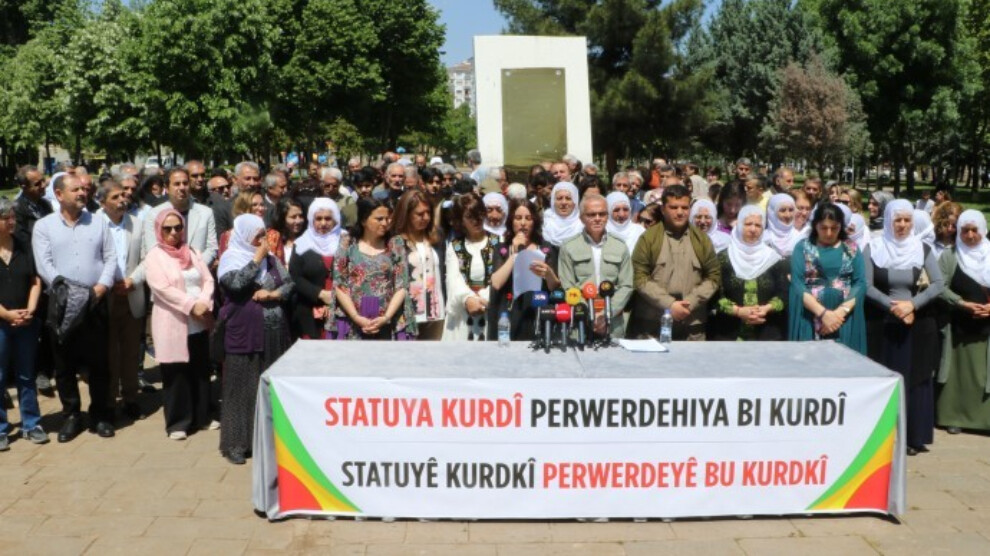Kurdish must be recognized as an official and education language
Representatives of language institutions called for Kurdish to be recognized as an official and educational language ahead of 15 May Kurdish Language Day events.
Representatives of language institutions called for Kurdish to be recognized as an official and educational language ahead of 15 May Kurdish Language Day events.

Associations, political parties, and civil society organizations that continue their efforts to promote and teach the Kurdish language have launched a series of actions and events as of 3 May, in anticipation of Kurdish Language Day on 15 May. Between 4 May and 1 June, numerous conferences, marches, and panel discussions will be held. The central demand of these events will be clear: “Status for Kurdish language, education in Kurdish.”
It must be an official and educational language
Among those who took part in the announcement was Bahar Peker, an activist from the Free Women’s Movement (TJA). She called for resisting assimilation policies and urged people to “embrace our language.” Peker highlighted the endangered status of the Kirmanckî dialect in particular and said: “We need to take Kirmanckî courses. We must send our children as well.”
Emine Caynak, also an activist from the TJA, stressed that a people is recognized by its language. She said: “We must keep our language alive. Whatever responsibility falls on us as women to ensure Kurdish becomes a language of education, we will fulfill it.”
Gülbahar Ateş, co-spokesperson of the Language Commission of the Diyarbakır (Amed) Branch of the Association of Lawyers for Freedom (ÖHD), emphasized the vital link between language, identity, and existence. She said, “Language is the existence and identity of a people, and that is why it matters. For this reason, Kurdish should be spoken everywhere, at the market, in the streets, wherever we are.”
A call to families
Kurdish language instructor Rıraf Roni underlined that Kurdish is the identity of the Kurdish people. Roni said: “Language is indispensable. That is why the Kurdish language is the key to Kurdish freedom. It represents the political status of the Kurdish people. Every Kurd, from the youngest to the oldest, must speak, read, and write in their mother tongue. They must live their daily lives in Kurdish. Families must speak Kurdish with their children.”
Cemile Turhallı Balsak, co-spokesperson of the Language and Culture Commission of the Peoples’ Equality and Democracy Party (DEM Party), emphasized the need for the Kurdish language to be granted official status. She said, “You cannot guarantee the survival of a language that has no legal status. Kurdish is an ancient language. It has survived for thousands of years. For the past forty years, Kurds have been fighting for their language. Across all of Kurdistan, people are resisting in defense of their language. We must strengthen and expand this struggle until we reach our goal.”
One of the participants, Mine Karakaş, condemned the ongoing assimilation policies against the Kurdish language. Karakaş said, “For one hundred years, policies of assimilation have been imposed on the Kurdish language. This is not limited to language; it targets our culture and identity as well. If the language is forgotten, everything is forgotten. That is why mother tongue is so important. We must protect it.”
Kurdish language educator Dilan Güvenç also voiced the demand for official status. She said, “Kurdish must be an official language and a language of education. We must defend and preserve our language in every field.”
Semra Akyüz, co-mayor of the Çınar (Xana Axpar) Municipality, concluded: “ We want to read in our own language; we want to think in our own language. Let Kurdish be an official language.”